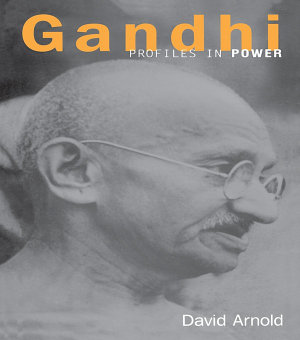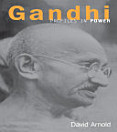Gandhi
জুন ২০১৪ · Routledge
৫.০star
২টি রিভিউreport
ই-বুক
284
পৃষ্ঠা
family_home
উপযুক্ত
info
reportরেটিং ও রিভিউ যাচাই করা হয়নি আরও জানুন
এই ই-বুকের বিষয়ে
Gandhi's is an extraordinary and compelling story. Few individuals in history have made so great a mark upon their times. And yet Gandhi never held high political office, commanded no armies and was not even a compelling orator. His 'power' therefore makes a particularly fascinating subject for investigation. David Arnold explains how and why the shy student and affluent lawyer became one of the most powerful anti-colonial figures Western empires in Asia ever faced and why he aroused such intense affection, loyalty (and at times much bitter hatred) among Indians and Westerners alike. Attaching as much influence to the idea and image of Gandhi as to the man himself, Arnold sees Gandhi not just as a Hindu saint but as a colonial subject, whose attitudes and experiences expressed much that was common to countless others in India and elsewhere who sought to grapple with the overwhelming power and cultural authority of the West. A vivid and highly readable introducation to Gandhi's life and times, Arnold's book opens up fascinating insights into one of the twentieth century's most remarkable men.
রেটিং ও পর্যালোচনাগুলি
৫.০
২টি রিভিউ
ই-বুকে রেটিং দিন
আপনার মতামত জানান।
পঠন তথ্য
স্মার্টফোন এবং ট্যাবলেট
Android এবং iPad/iPhone এর জন্য Google Play বই অ্যাপ ইনস্টল করুন। এটি আপনার অ্যাকাউন্টের সাথে অটোমেটিক সিঙ্ক হয় ও আপনি অনলাইন বা অফলাইন যাই থাকুন না কেন আপনাকে পড়তে দেয়।
ল্যাপটপ ও কম্পিউটার
Google Play থেকে কেনা অডিওবুক আপনি কম্পিউটারের ওয়েব ব্রাউজারে শুনতে পারেন।
eReader এবং অন্যান্য ডিভাইস
Kobo eReaders-এর মতো e-ink ডিভাইসে পড়তে, আপনাকে একটি ফাইল ডাউনলোড ও আপনার ডিভাইসে ট্রান্সফার করতে হবে। ব্যবহারকারীর উদ্দেশ্যে তৈরি সহায়তা কেন্দ্রতে দেওয়া নির্দেশাবলী অনুসরণ করে যেসব eReader-এ ফাইল পড়া যাবে সেখানে ট্রান্সফার করুন।







